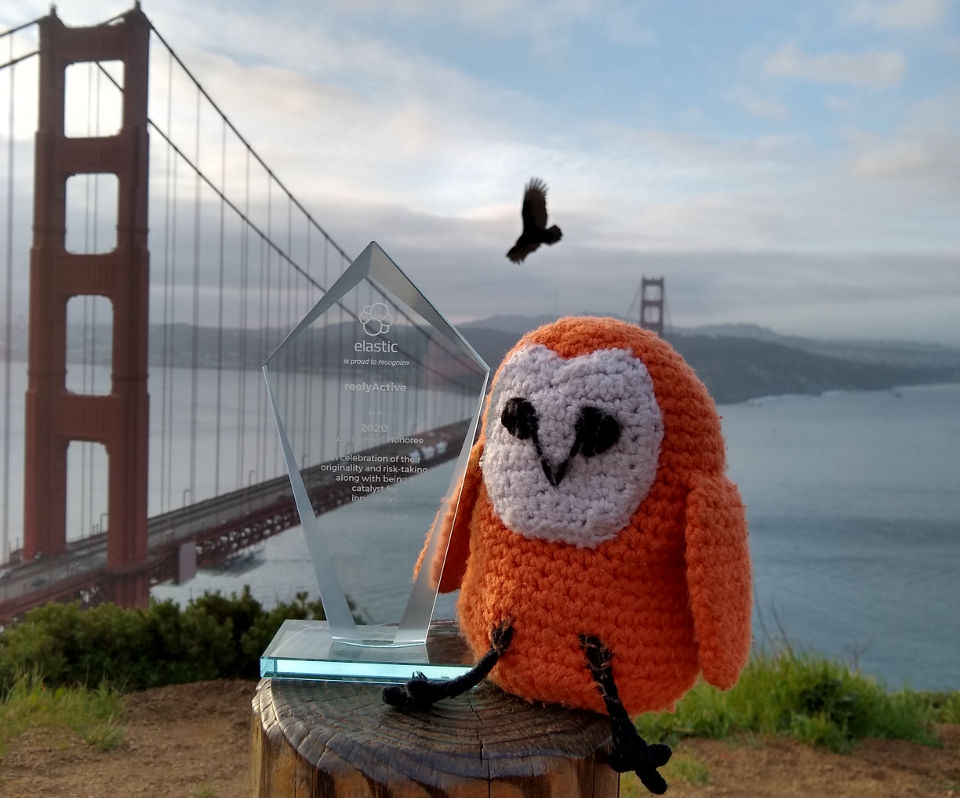A year ago today we found ourselves in San Francisco proudly accepting an Elastic Search Award.

A year ago today, COVID-19 had not yet been declared a global pandemic, and the Elastic Stack was open source. Today, the Elastic Stack is no longer open source, and we’re in the second wave of a global pandemic. Reflecting on the past year we ask:
How is it that we were able to double down on open source (software and hardware!) during a global crisis while some organisations instead changed course?
Organisations? As in more than one? Yes. Here we are referring to Oxford University reversing its decision to open source their coronavirus vaccine. And Elastic’s license change which was announced in January of this year.
What’s so special about open source, you may ask?
In a word, community. At Elastic{ON} 2020 we were impressed by many things, but none more than the strong sense of community among Elastic’s diverse and distributed workforce and network of contributors, partners and investors. A project on the scale of the Elastic Stack inspires purposeful contribution, not just to the code base, but to the project as a whole, from the community and, critically, for the community.
![]()
Open source is about distribution terms (i.e. implications for the community), not just access to code. Hence the OSD: Open Source Definition. And that’s where Elastic’s recent license change establishes terms outside of this definition, with resulting implications for the community, even if the code remains as accessible as before.
Imagine now the Oxford vaccine being distributed as open source, as originally intended. Imagine the strong sense of global community this would have instilled, let alone the purposeful contributions it would have received to facilitate both distribution (130 countries still had not administered a single vaccination around the time of writing, according to UNICEF!) and continuous improvement as new challenges and strains of the virus emerge.
Why the departure from open source, you may ask?
In a word, pressure. We invite the reader to inform themselves and draw their own conclusions as to the source(s) of pressure for both Oxford and Elastic to reverse course on open source. And, critically, to identify what prevented each organisation’s leadership from successfully resisting that pressure?
Indeed we too received pressure against open sourcing Pareto Anywhere and its precursors. This past year, our decisions to open source DirAct and our ca-va-bracelet open hardware collaboration were strongly contested. How were we able to successfully resist? The ownership structure of our purpose-driven organisation affords us—and only us—the final say.

Will we continue to use the Elastic Stack? Yes, of course. It remains an outstanding example of open source collaboration and we remain proud of our award and contributions! Let’s look back again in a year to see what impact the recent license change will have had for the community.
Will people still get vaccinated? Yes, of course. The global vaccine effort has been unprecedented even if the precedent of proprietariness remains unbroken. Let’s look back again in a year to see what impact this approach will have had on immunisation rates for the global community.
Finally, were we ourselves A Fool to Open Source? We mused tongue-in-cheek about the subject in our traditional April Fool’s blog post five years ago. As we hope we’ve shown, there is clearly no consensus—even in the software industry where the open source movement began decades ago. For those who bade farewell to open source this past year, we trust that their communities—of which we are a part—will continue to fare well. We nevertheless maintain our philosophy that open source is what’s best for the community.
